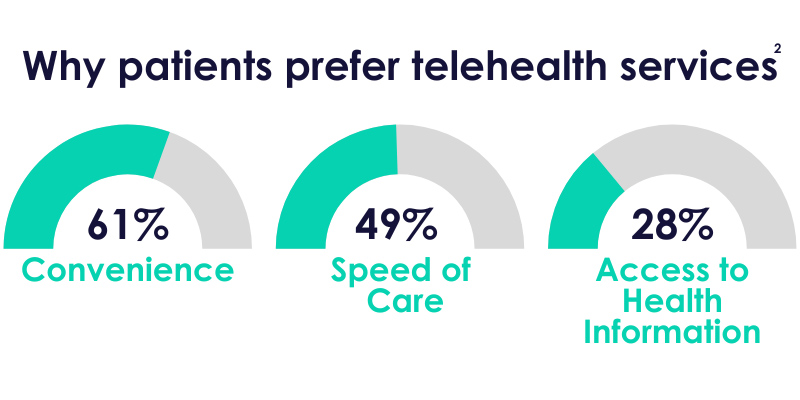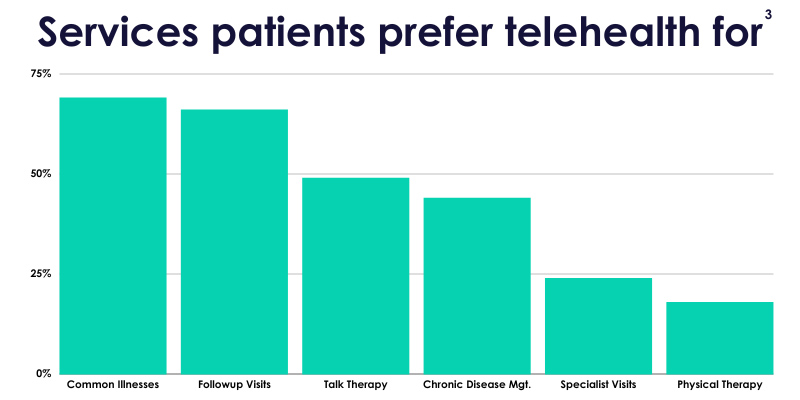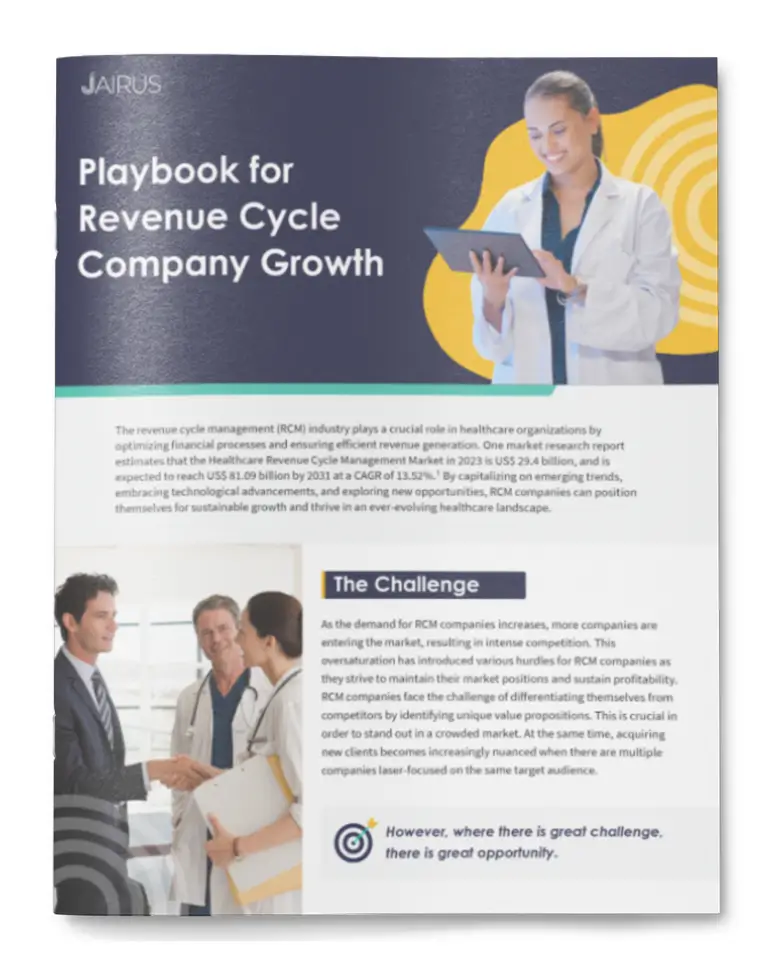Last year, nearly a quarter of U.S. patients used telehealth services – a dramatic increase from pre-pandemic utilization of 5%.1 It’s a trend that the healthcare industry predicts will continue, and for good reason: Patients like it.
While patient demand for hybrid care grows, many hospitals struggle to fully capitalize on the opportunity. The right marketing strategy helps hospitals scale existing telehealth services and lays the foundation for future program expansion by meeting patients exactly where they want to be: Online. Dive into the case for increasing emphasis on virtual care and marketing’s role in that process:
Understanding the evolution of virtual care in the U.S.
In a 2022 survey from JD Power, 94% of respondents who had utilized telehealth services in the past year indicated that they intended to do so again.2 In the same survey, patients cited three key benefits behind their preference for telehealth: Convenience, speed of care and access to health information.

While much of telehealth adoption has centered around primary care in recent years, the shift to virtual care is one hospitals can’t afford to ignore either, especially in the face of continuing provider shortages (which the American Hospital Association predicts will reach a deficit of 124,000 physicians by 2033) and increasing cost of care. Beyond primary care, more providers are turning to telehealth for other medical services – from mental health to physical therapy and management of chronic conditions.3

How digital marketing can help hospitals capitalize on virtual care as a growing revenue stream
A July 2022 survey found that Gen Zers – those between ages 12 and 26 – are currently the fast-growing users of telehealth care4 with lower cost of care cited as a top reason.5 But other generations also see high rates of utilization – including older adults. In 2021, the CDC reported that 43% of adults age 65 and over had used telemedicine in the last year.
That widespread usage further highlights the opportunity virtual care presents as a driver of new patient visits for hospitals that adopt and market telehealth programs correctly. Digital marketing plays an integral role in doing so, allowing healthcare organizations to more effectively target patients, streamline intake processes and measure overall impact of those efforts on revenue goals (bonus: it’s often more cost-effective than traditional marketing too!)
Given patients already turn to digital platforms for health information (Google fields nearly a billion health-related questions daily6), hospitals that implement an omnichannel marketing strategy have a significant advantage – especially when it comes to virtual care. The patient experience, from first touch point to point-of-care to post-visit followup can be digitally seamless, providing unprecedented insights into patient behaviors that drive revenue growth and positioning hospital marketing departments to pinpoint ROI like never before.
Doing so effectively means laying a strong foundation for your organization’s digital presence with search engine optimization and a content strategy, layered with engagement-driven outreach on the organic and digital ad channels already used by your patient population.
Interested in learning how digital healthcare marketing can help your hospital better reach patients, drive service line growth and meet revenue goals? Let us know.
Sources
- https://www.ama-assn.org/practice-management/digital/what-expect-telehealth-2023-here-are-5-predictions
- https://mhealthintelligence.com/news/patients-indicate-high-levels-of-satisfaction-following-telehealth-use#:~:text=At%20the%20beginning%20of%20the,it%20to%20in%2Dperson%20care.
- https://www.singlecare.com/blog/telehealth-survey/
- https://www.pymnts.com/healthcare/2022/the-data-point-16-percent-youthful-generation-z-use-telehealth-leading-all-age-groups/#:~:text=Starting%20out%20in%20life%20and,so%2C%E2%80%9D%20the%20study%20stated.
- https://www.insiderintelligence.com/chart/252784/what-top-reasons-using-planning-use-telehealth-services-according-us-telehealth-users-of-respondents-by-generation-oct-2021
- https://www.beckershospitalreview.com/healthcare-information-technology/google-receives-more-than-1-billion-health-questions-every-day.html


